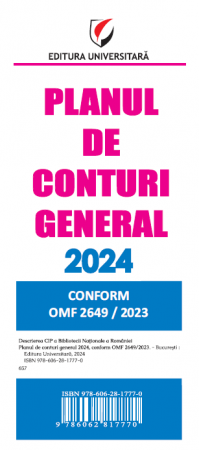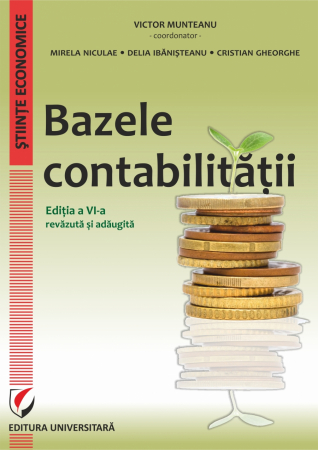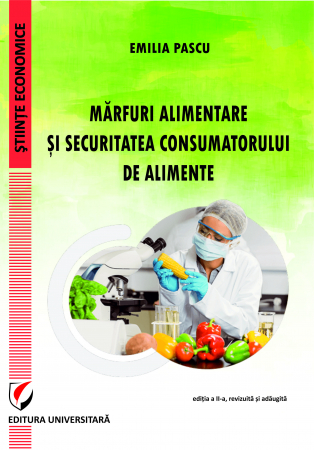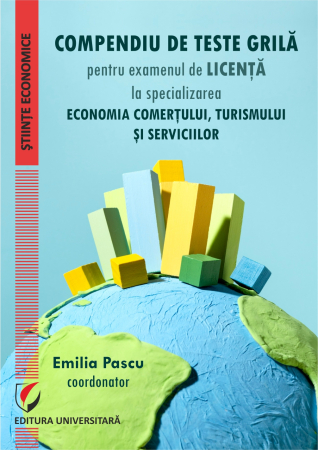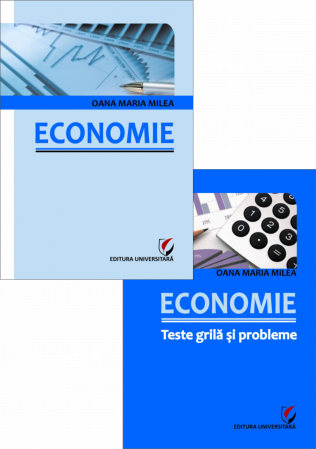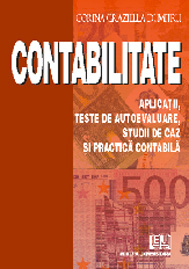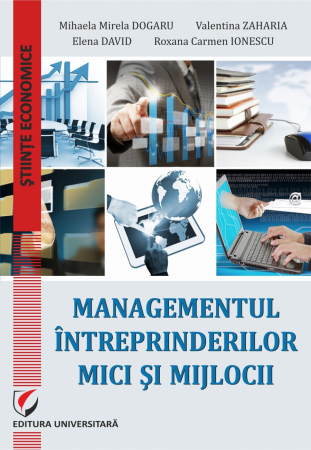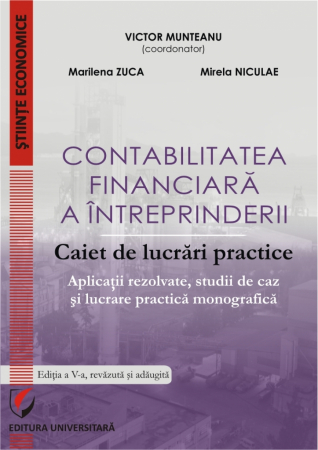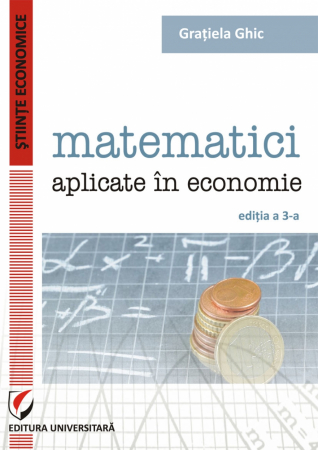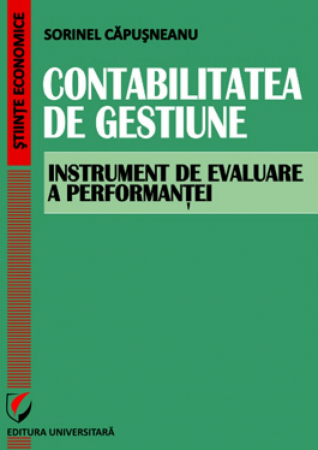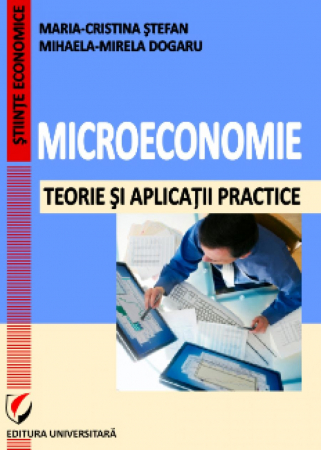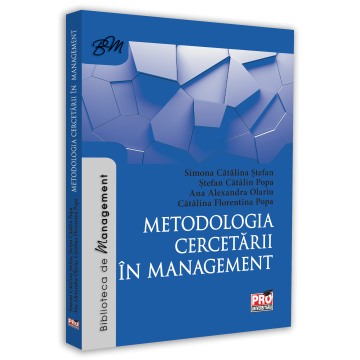Manuscript proposals: [email protected] / 0745 204 115 //// Tracking orders Individuals / Sales: 0745 200 357 / Orders Legal entities: 0721 722 783
Publisher: Editura Universitară
Author: Cristina-Emilia Ciovica (Florea)
ISBN: 978-606-28-1099-3
DOI: https://doi.org/10.5682/9786062810993
Publisher year: 2020
Edition: I
Pages: 150
Product Code:
9786062810993
Do you need help?
0745 200 357
- Description
- Download (1)
- Authors
- Content
- More details
- Reviews (0)
Economic development today represents a reality, a certainty, but also a state of mind through which society manages to provide the means necessary for a better life with the help of processes of a social, economic and institutional nature. Following the same principles, the economic development of a city means nothing more than a means to achieve the economic objectives of the community of which it is composed in terms of income, employment rate, productivity, tax collection, consumption of inhabitants and their accessibility to various goods and services, environmental quality, etc. Economic activity is, at the same time, closely related to the degree of mobility because transport is what unites people, businesses and resources. In this context, policies focused on measures to improve transport are often considered to be one of the best ways to support the economic objectives of a city. Although transport contributes greatly to economic productivity, it still generates significant economic and social costs. This is the level at which the distinction between accessibility and mobility must be made. We want to have access to a wide range of products and services, but we must take into account not to restrict the mobility of people and resources by finding a balance between efficiency and transportation needs. This presupposes that the transport reaches sustainable dimensions by sharing the specific attributions of each actor participating in the decision-making process in this field.
-
Synergies of Sustainable Urban Transport in Romania
Download
CRISTINA-EMILIA CIOVICA (FLOREA)
Introduction / 7
Chapter 1 - Transport, the essential component of the economy / 9
1.1. The evolution of transports at global and European level / 9
1.2. European and national regulatory framework / 22
1.3. Concepts and delimitations in the context of a sustainable transport / 37
Chapter 2 - Sustainable urban transport and its importance in the economy / 45
2.1. Dynamics of urban transport worldwide / 45
2.2. The relationship between transport and economic development / 52
Chapter 3 - Eco-economic characteristics of urban road transport in Romania. Transport safety and its implications / 66
3.1. Urban development - the expansion and transport needs seen through the prism of the National Strategy for Road Safety / 66
3.2. Problems in urban transport management. Monograph of road accidents in Romania on the main geographical areas and important urban agglomerations / 70
3.3. Analysis and quantification of the economic and environmental impact of sustainable transport. Road accidents and their implications for SMURD / 82 interventions
Chapter 4 - Strategy for the development of sustainable urban transport in Bucharest / 98
4.1. Strategic vision and design of a new Strategy for the development of sustainable urban transport / 98
4.2. Strategic position / 111
4.3. The impact of implementation in relation to the requirements of sustainable development / 120
Chapter 5 - Modeling synergies for the development of sustainable urban transport / 126
5.1. Methodology development / 126
5.2. Delimitation and presentation of the analyzed systems / 132
Conclusions / 137
Bibliography / 144
Chapter 1 - Transport, the essential component of the economy / 9
1.1. The evolution of transports at global and European level / 9
1.2. European and national regulatory framework / 22
1.3. Concepts and delimitations in the context of a sustainable transport / 37
Chapter 2 - Sustainable urban transport and its importance in the economy / 45
2.1. Dynamics of urban transport worldwide / 45
2.2. The relationship between transport and economic development / 52
Chapter 3 - Eco-economic characteristics of urban road transport in Romania. Transport safety and its implications / 66
3.1. Urban development - the expansion and transport needs seen through the prism of the National Strategy for Road Safety / 66
3.2. Problems in urban transport management. Monograph of road accidents in Romania on the main geographical areas and important urban agglomerations / 70
3.3. Analysis and quantification of the economic and environmental impact of sustainable transport. Road accidents and their implications for SMURD / 82 interventions
Chapter 4 - Strategy for the development of sustainable urban transport in Bucharest / 98
4.1. Strategic vision and design of a new Strategy for the development of sustainable urban transport / 98
4.2. Strategic position / 111
4.3. The impact of implementation in relation to the requirements of sustainable development / 120
Chapter 5 - Modeling synergies for the development of sustainable urban transport / 126
5.1. Methodology development / 126
5.2. Delimitation and presentation of the analyzed systems / 132
Conclusions / 137
Bibliography / 144
Economic development today represents a reality, a certainty, but also a state of mind through which society manages to provide the means necessary for a better life with the help of processes of a social, economic and institutional nature. Following the same principles, the economic development of a city means nothing more than a means to achieve the economic objectives of the community of which it is composed in terms of income, employment rate, productivity, tax collection, consumption of inhabitants and their accessibility to various goods and services, environmental quality, etc. Economic activity is, at the same time, closely related to the degree of mobility because transport is what unites people, businesses and resources. In this context, policies focused on measures to improve transport are often considered to be one of the best ways to support the economic objectives of a city. Although transport contributes greatly to economic productivity, it still generates significant economic and social costs. This is the level at which the distinction between accessibility and mobility must be made. We want to have access to a wide range of products and services, but we must take into account not to restrict the mobility of people and resources by finding a balance between efficiency and transportation needs. This presupposes that the transport reaches sustainable dimensions by sharing the specific attributions of each actor participating in the decision-making process in this field.
All these aspects constitute the premises from which we started, as well as the reason why we chose the doctoral thesis entitled “Synergies of sustainable urban transport in Romania”. The importance of transport in the economy has grown exponentially in recent years and has dimensions that are difficult to limit, it has implications in a multitude of directions; it can affect the connections between resources, labor, the business of certain companies, customers, their expenses or the way in which a certain area is used and even the lives of citizens, etc. Therefore, compliance with the requirements of sustainable development must be an integral part of all processes applied in the economy and implicitly in the transport sector.
The entire set of objectives and strategic options proposed by the doctoral thesis correspond to the targets set in the mentioned documents and place it in a theoretical and practical actuality, in scientific and methodological plan. Thus, the aim of the thesis was to make as much as possible a contribution to the in-depth knowledge of the field of transport through a thorough scientific research and practical examples, harmoniously combined with theory, through a mathematical modeling of relevant indicators in the sector. targeted, but also by issuing recommendations at the level of development strategy based on a synergy obtained through the cooperation of several institutions whose activities influence the development of transport and their safety. Also, through the results of the research and the proposed strategy, we aimed to offer viable solutions for improving the quality of life of the inhabitants of Bucharest through a sustainable transport based on a high degree of road safety.
All these aspects constitute the premises from which we started, as well as the reason why we chose the doctoral thesis entitled “Synergies of sustainable urban transport in Romania”. The importance of transport in the economy has grown exponentially in recent years and has dimensions that are difficult to limit, it has implications in a multitude of directions; it can affect the connections between resources, labor, the business of certain companies, customers, their expenses or the way in which a certain area is used and even the lives of citizens, etc. Therefore, compliance with the requirements of sustainable development must be an integral part of all processes applied in the economy and implicitly in the transport sector.
The entire set of objectives and strategic options proposed by the doctoral thesis correspond to the targets set in the mentioned documents and place it in a theoretical and practical actuality, in scientific and methodological plan. Thus, the aim of the thesis was to make as much as possible a contribution to the in-depth knowledge of the field of transport through a thorough scientific research and practical examples, harmoniously combined with theory, through a mathematical modeling of relevant indicators in the sector. targeted, but also by issuing recommendations at the level of development strategy based on a synergy obtained through the cooperation of several institutions whose activities influence the development of transport and their safety. Also, through the results of the research and the proposed strategy, we aimed to offer viable solutions for improving the quality of life of the inhabitants of Bucharest through a sustainable transport based on a high degree of road safety.
If you want to express your opinion about this product you can add a review.
write a review

6359.png)
![Synergies of Sustainable Urban Transport in Romania [1] Synergies of Sustainable Urban Transport in Romania [1]](https://gomagcdn.ro/domains/editurauniversitara.ro/files/product/large/sinergii-ale-transportului-urban-durabil-in-romania-9-423902.jpg)
